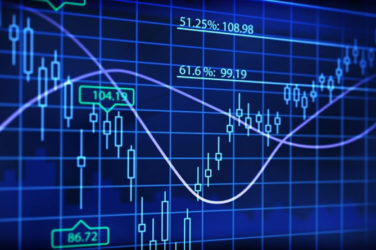
The size of FX trades being handled electronically is growing as buy-side customers become increasingly cognizant of the potential of algorithmic trading.
“Algorithmic trading is the next new thing that you’re going to see,” said James Cochrane, head of FX sales at Investment Technology Group. “Slowly but surely, instead of giving a $100 million trade over the phone to a bank, people are starting to put that $100 million trade on an algo.”
Cochrane noted that proprietary trading firms have an opportunity to ‘disintermediate’ the banks in FX trading by creating innovative algorithmic trading programs.
“A lot of the banks — Citi, J.P. Morgan, Credit Suisse, to name a few — all have decent algos, but that’s an area where someone with a great computer programmer can offer an algorithmic trading tool that would beat the bank,” he said. “You will see large asset managers increase the volume of algo trading, just like they have in the equity market.”
The diversity of FX market participants — buy side, exchanges, clearing houses, trading platforms, MTFs, technology companies, banks—is s represented by the newly-formed Foreign Exchange Professionals Association (FXPA), whose members include The Bank of New York Mellon, CalPERs, Campbell & Company, Citadel, CME Group, GFI Group, LCH.Clearnet, LMAX Exchange, Traiana and Virtu Financial.
“As technological innovation, new competitive forces, and an evolving regulatory framework redefine the FX landscape, we must promote market structure that fosters robust, efficient and transparent markets for all participants,” said Adam Cooper, FXPA chairman and senior managing director and chief legal Officer of Citadel, in a release. “FX is a cornerstone to our capital markets, and the FXPA is the ideal vehicle to strengthen collaboration across the industry and engagement with policymakers to achieve these shared objectives.”
ITG is combining its expertise in equities trading, transaction cost analysis and dark pools to create FX trading tools, Cochrane said.
“We’re building up these capabilities now to actually give them access to dark pool trading from Posit (ITG’s dark pool),” he said. “We have a dark pool equity trading mechanism which we can convert into an FX dark pool trading mechanism, which offers something that’s unique. There are other FX dark pools out there, but ours is one that has an equity component.”
He added, “We’re providing our equity clients access to foreign exchange trading, in concert with their ability to trade equities. They would love to not switch screens, they think we do a very good job in the equity markets, and they trust us and they would love to do foreign exchange with us.”
Cochrane, who has been working in FX sales since 1995, said the pace of change in the market has quickened noticeably. “When electronic trading first came on, the bank didn’t even offer it to the FX sales team,” he said. “Now, the banks are very comfortable streaming prices to customers, and the customers are very comfortable pushing a button on 360T or FXall or a single-bank platform, and getting that liquidity for small sizes.”
Featured image by Sergio Martínez/Dollar Photo Club





